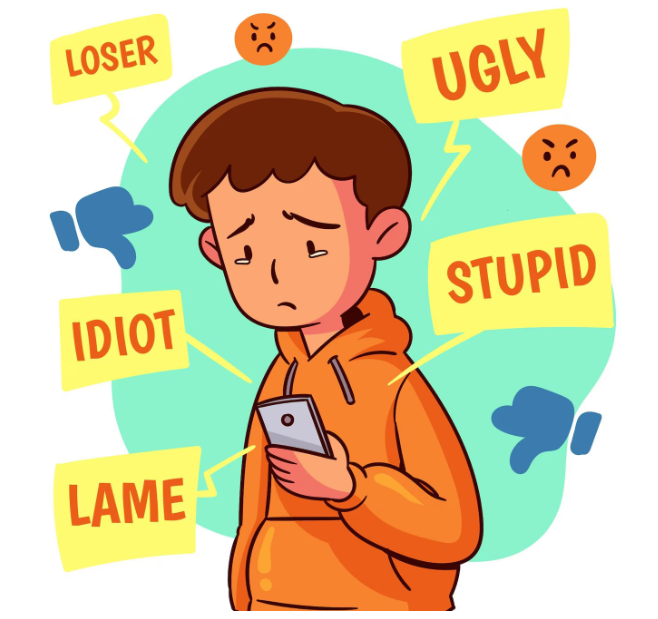Everyone knows the feeling: you do something you know is bad for you—like procrastinating, overeating, picking a fight, or falling into the same toxic habits—and then wonder, Why do I keep doing this?
It’s easy to think you simply lack discipline, but the truth is more complex. Let’s explore why people repeatedly do things that harm them, why it feels impossible to stop, and what you can do to finally break free.
Why Do People Continue to Do Things That Are Bad for Them?
There are many reasons why people keep making the same unhealthy choices, even when they recognize the damage. Here are some of the most common:
1. Instant Gratification
Humans are wired to seek pleasure and avoid pain. Bad habits often deliver a quick reward—a dopamine boost—while the consequences come later.
Examples:
- Eating junk food relieves stress (for a moment).
- Scrolling social media distracts from anxiety.
- Drinking helps you forget problems temporarily.
This immediate payoff reinforces the behavior.
2. Emotional Coping
People often do harmful things to soothe difficult feelings:
- Loneliness
- Shame
- Anxiety
- Boredom
When you lack healthier coping mechanisms, your brain defaults to old patterns.
3. Habit Loops
Repeated behaviors create neural pathways in your brain. Over time, the loop becomes automatic:
Trigger → Behavior → Reward
Breaking this cycle requires conscious effort and replacement behaviors.
4. Low Self-Worth
Deep down, some people don’t believe they deserve better. Self-destructive choices can reflect an unconscious desire to confirm negative beliefs:
- “I’m not good enough.”
- “I always mess things up.”
- “I don’t deserve to be happy.”
5. Fear of Change
Even when you want to improve, change feels threatening. Staying stuck is familiar—and familiarity feels safer than the unknown.

Why Do People Purposely Do Bad Things?
Not everyone’s harmful actions are unconscious. Sometimes people deliberately make choices they know are wrong. Here’s why:
- Rebellion: Acting out to feel powerful or in control.
- Resentment: Wanting to hurt someone who hurt them.
- Impulsivity: Acting before thinking through consequences.
- Thrill-seeking: Enjoying risk or danger.
- Escapism: Using bad behavior to numb or distract.
This doesn’t mean they’re “bad” people—just that their emotions are driving their actions.
Why Do Bad Things Happen Continuously?
If you feel like bad events keep happening, it’s easy to think you’re cursed or unlucky. But often, there are patterns behind continuous setbacks:
1. Self-Fulfilling Prophecies
If you expect failure, you may act in ways that unconsciously create it.
2. Unhealthy Environments
Toxic relationships, stressful workplaces, or unstable living situations can keep you stuck in a negative cycle.
3. Unresolved Trauma
Past wounds can affect your beliefs and choices, attracting similar harmful situations over and over.
4. Lack of Boundaries
When you don’t enforce personal boundaries, people may mistreat you repeatedly.
5. Neglecting Self-Care
Ignoring your physical and mental health makes you more vulnerable to crises.
Why Do I Constantly Do Bad Things?
If you find yourself asking this question, you’re already on the path to self-awareness. Here are a few possible reasons:
- Your habits are automatic. You act without thinking.
- You’re using behavior to cope. Even harmful actions provide comfort.
- You haven’t learned other strategies. No one taught you healthier ways to handle stress or pain.
- You feel unworthy of better. Deep-seated shame drives self-sabotage.
- You fear success. Change means responsibility and risk.
Why Can’t I Stop Doing Bad Things?
You can—but it’s difficult because of how habits are wired into your brain. You may also:
- Lack clear goals.
- Lack support or accountability.
- Feel overwhelmed.
- Have untreated mental health issues (like anxiety, depression, or ADHD).
How to Break the Cycle of Self-Destructive Behavior
Change is possible, no matter how long you’ve been stuck. Here’s how to start:
1. Identify Your Triggers
Ask yourself:
- When do I do this?
- What feelings or thoughts come before?
- Who am I with?
- What am I trying to avoid?
Awareness is the first step.
2. Replace, Don’t Just Remove
Instead of trying to simply stop, find a healthier alternative:
- Instead of scrolling, go for a short walk.
- Instead of junk food, make herbal tea.
- Instead of lashing out, write your feelings down.
3. Create Barriers to Bad Habits
Make it harder to engage in the behavior:
- Remove tempting apps.
- Don’t keep unhealthy snacks in the house.
- Change your environment.
4. Practice Self-Compassion
You won’t change overnight. Speak to yourself as you would a friend:
“I’m learning. It’s okay to struggle.”
Shame only fuels the cycle.
5. Get Support
Change is easier with help:
- Therapists or counselors
- Support groups
- Friends and family who understand
6. Set Small, Realistic Goals
Focus on one change at a time. Success builds confidence.
7. Reward Yourself
Celebrate every positive step, no matter how small.
Final Thoughts: You Are Not Alone
Everyone does things they regret. The difference between staying stuck and moving forward is self-awareness and action. By understanding why you behave the way you do, you can start to create new patterns—one small choice at a time.
Remember:
✨ You deserve better. You are capable of change.
If you’re struggling, don’t hesitate to reach out for professional support. Healing is a journey, and you don’t have to walk it alone.
